TELEPHONES ANSWERED 24 HOURS A DAY
Recent Blog Posts
Why Is the Punishment for Bank Fraud So Harsh?
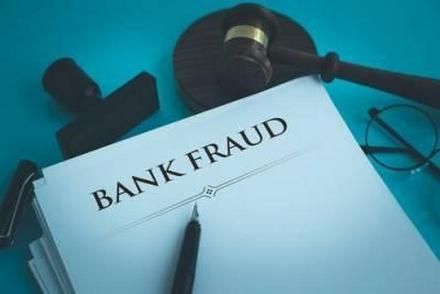 The Justice Department recently indicted 10 men from the Chicago area on bank fraud charges. According to a press release issued by the department, the men allegedly deposited the counterfeit money orders, which were issued by the U.S. Postal Service, into bank accounts they had access to and then immediately withdrew the money. The indictments allege that the men committed fraud by altering the money orders, changing them from $10 to a higher sum, typically $800 or $1,000, and then depositing the fraudulent amounts. In all, the men allegedly defrauded more than $1 million from various banks.
The Justice Department recently indicted 10 men from the Chicago area on bank fraud charges. According to a press release issued by the department, the men allegedly deposited the counterfeit money orders, which were issued by the U.S. Postal Service, into bank accounts they had access to and then immediately withdrew the money. The indictments allege that the men committed fraud by altering the money orders, changing them from $10 to a higher sum, typically $800 or $1,000, and then depositing the fraudulent amounts. In all, the men allegedly defrauded more than $1 million from various banks.
For many, a couple of things might jump out in this case. First, the alleged crime was investigated by the U.S. Postal Inspection Service. Although you rarely hear about the Postal Inspectors, they are actually one of the oldest federal law enforcement agencies in the U.S. Like the FBI, they have the power to enforce a wide range of federal laws, but the crimes usually have to somehow involve the Postal Service.
What is Gun Trafficking?
 In response to a sharp increase in gun deaths across the country, the Department of Justice this week launched a multi-jurisdiction strike force to target illegal gun traffickers. Officials hope cutting off the supply of illegal weapons will result in fewer gun deaths.
In response to a sharp increase in gun deaths across the country, the Department of Justice this week launched a multi-jurisdiction strike force to target illegal gun traffickers. Officials hope cutting off the supply of illegal weapons will result in fewer gun deaths.
With 19,410 victims killed in 2020, last year saw about a 20 percent increase in gun-related murders, according to the Gun Violence Archives, an organization that tracks gun violence across the country. Almost seven months into the year, 2021 has already seen 11,635 people die from gun violence.
The Justice Department said the strike force is part of a larger comprehensive strategy introduced by the attorney general and president earlier this year. For the strike force, the feds will work with local and state officials, and while the entire country is fair game, they will primarily focus on regional areas like New York, Chicago, Los Angeles, the Bay area, and the District of Columbia.
How Severe Are the Consequences for Federal Child Pornography Charges?
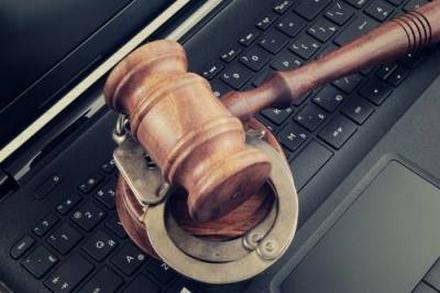 The U.S. Attorney’s Office for the Northern District of Illinois indicted a Chicago man for allegedly producing child pornography earlier this month. According to the news release, the man allegedly persuaded several minors to engage in sexual activities and then secretly recorded it. When federal agents searched his home, they found a plethora of explicit material of a similar nature on hard drives, a cell phone, and a computer. Given the severity of the alleged child sex crimes, the man could face serious prison time.
The U.S. Attorney’s Office for the Northern District of Illinois indicted a Chicago man for allegedly producing child pornography earlier this month. According to the news release, the man allegedly persuaded several minors to engage in sexual activities and then secretly recorded it. When federal agents searched his home, they found a plethora of explicit material of a similar nature on hard drives, a cell phone, and a computer. Given the severity of the alleged child sex crimes, the man could face serious prison time.
Federal Child Pornography Laws
According to federal law, there are about half a dozen statutes covering child pornography, but they can be categorized into four groups: producing child pornography; buying and selling it; possessing, distributing, and receiving it; and producing sexually explicit depictions of a minor for importation into the U.S.
What Are The Penalties For Unlawful Ownership Of A Machine Gun?
 Earlier this month, the U.S. Attorney’s Office filed charges against a Chicago man for trafficking cocaine and transferring a loaded submachine gun. While it is fairly common to hear about drug and gun charges being filed together, machine gun charges are actually kind of rare. In fact, only about 7 percent of the more than 65,000 federal gun charges filed between 2008 and 2017 involved a machine gun.
Earlier this month, the U.S. Attorney’s Office filed charges against a Chicago man for trafficking cocaine and transferring a loaded submachine gun. While it is fairly common to hear about drug and gun charges being filed together, machine gun charges are actually kind of rare. In fact, only about 7 percent of the more than 65,000 federal gun charges filed between 2008 and 2017 involved a machine gun.
A History of U.S. Machine Gun Laws
One partial explanation for the small number of machine-gun charges is that the federal government started cracking down on machine gun ownership following the Prohibition Era. In 1934, Congress passed the National Firearms Act, which requires anyone who buys an automatic weapon, short-barreled rifle or shotgun, or silencer to register the item, pay a $200 tax, and complete a number of other bureaucratic steps.
A half-century later, after a number of high-profile assassinations, Congress passed the Gun Control Act of 1968, and then updated it in the 1980s amid an uptick in crime. The latter limited machine gun transfers by essentially prohibiting the production of machine guns after 1986.
Are Penalties Harsher for Stealing Guns From a Gun Store?
 During the social unrest in the summer of 2020, gun stores were a popular target for burglars and looters. In most cases, thieves arrived in groups, gained entrance by smashing through the storefront, and proceeded to ransack the store. Using that method, they could often steal dozens of firearms in a short amount of time.
During the social unrest in the summer of 2020, gun stores were a popular target for burglars and looters. In most cases, thieves arrived in groups, gained entrance by smashing through the storefront, and proceeded to ransack the store. Using that method, they could often steal dozens of firearms in a short amount of time.
Most gun stores have alarm systems and surveillance cameras, and they are required by federal law to keep detailed records of their inventory. Before any of that, though, gun stores need a federal firearms license (FFL) in order to operate, which puts them in federal jurisdiction.
Gun thefts from a store with an FFL are primarily investigated by agents with the Bureau of Alcohol, Tobacco, Firearms, and Explosives (ATF). Suspects identified in such an investigation could face federal charges such as stealing firearms, possessing stolen guns, and even conspiracy.
What to Do If You Are Charged with a Federal Crime
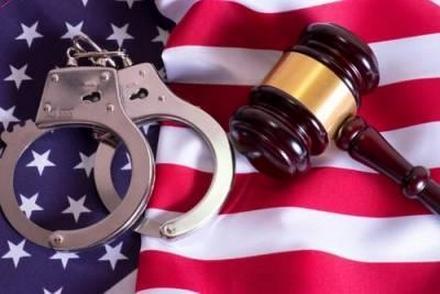 A federal crime is any offense that violates United States federal laws. These crimes are prosecuted by government agencies and can come with harsher punishments than state crimes. If you were recently charged with a federal offense, the steps you take afterward can have a large impact on the outcome of your case, including your chances of avoiding conviction or reducing your sentence.
A federal crime is any offense that violates United States federal laws. These crimes are prosecuted by government agencies and can come with harsher punishments than state crimes. If you were recently charged with a federal offense, the steps you take afterward can have a large impact on the outcome of your case, including your chances of avoiding conviction or reducing your sentence.
Steps to Take If You Are Facing a Federal Criminal Charge
Facing a federal criminal charge can definitely be a frightening ordeal. However, it is important to maintain your composure and take the necessary steps to protect your rights and build a strong defense.
-
Understand whether you could face both federal and state charges. If you violated both federal and state laws, you may be up against both federal and state charges. This means that even if you get convicted or acquitted of a state crime, the government can still charge you with a federal crime. Knowing the stakes can help you choose the most appropriate response.
What Are the Different Types of Federal Drug Charges?
 If you have been charged with a federal drug crime, it is crucial to have a skilled Illinois criminal attorney on your side. If convicted of a federal drug crime, you may face serious penalties, such as prison time and heavy fines. A lawyer will help you build a strong defense and protect your legal rights.
If you have been charged with a federal drug crime, it is crucial to have a skilled Illinois criminal attorney on your side. If convicted of a federal drug crime, you may face serious penalties, such as prison time and heavy fines. A lawyer will help you build a strong defense and protect your legal rights.
When Drug Crimes Become Federal Offenses
Some drug crimes are charged at the state level while others are charged at the federal level. You will likely be charged federally if you commit a drug offense on federal property, such as a national park. You may also be charged federally if you are caught manufacturing or trafficking illegal drugs, especially across state lines.
Types of Federal Drug Crimes
Federal drug crimes come with penalties beyond prison time. If you get convicted of a federal drug crime, you will have a permanent criminal record, making it more difficult to get a job and place to live. Here are several types of federal drug crimes:
When Is Kidnapping Charged as a Federal Crime?
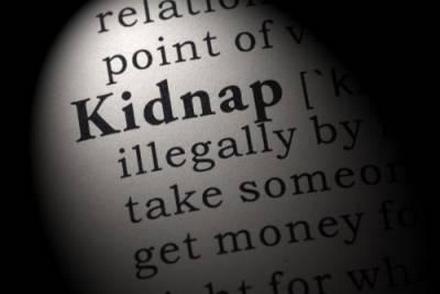 Many crimes have the potential to be charged at either the state or federal level. Prosecutors must come to an agreement as to which entity has jurisdiction, or whether both entities have jurisdiction, before they can proceed with charging a crime. Kidnapping is one of the crimes that can be charged in both state and federal courts. Federal kidnapping charges can be extremely serious and can end up landing you in prison for many, many years. If you have been charged with kidnapping at any level, you need assistance from a skilled Illinois kidnapping defense attorney.
Many crimes have the potential to be charged at either the state or federal level. Prosecutors must come to an agreement as to which entity has jurisdiction, or whether both entities have jurisdiction, before they can proceed with charging a crime. Kidnapping is one of the crimes that can be charged in both state and federal courts. Federal kidnapping charges can be extremely serious and can end up landing you in prison for many, many years. If you have been charged with kidnapping at any level, you need assistance from a skilled Illinois kidnapping defense attorney.
Understanding Federal Kidnapping Crimes
According to the United States Code, kidnapping occurs when a person seizes, confines, abducts, or takes and holds for ransom any person. For the act to be considered a federal crime, one or more of the following elements must also be true:
-
The kidnapper transported the victim across state or country lines.
What Are the Penalties for a Federal Hate Crime?
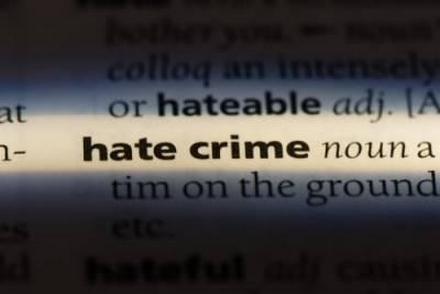 In light of events that have taken place across the country in recent years, you may have heard of various hate crimes taking place against many different individuals. According to the Federal Bureau of Investigation (FBI), there were more than 7,300 incidents of hate crime that took place across the country in 2019, the latest year for which the FBI has data. Hate crimes are often punished on the state level, but many people do not realize that they can be prosecuted on the federal level, as well. Various federal statutes have been put into place to help protect the rights of certain individuals.
In light of events that have taken place across the country in recent years, you may have heard of various hate crimes taking place against many different individuals. According to the Federal Bureau of Investigation (FBI), there were more than 7,300 incidents of hate crime that took place across the country in 2019, the latest year for which the FBI has data. Hate crimes are often punished on the state level, but many people do not realize that they can be prosecuted on the federal level, as well. Various federal statutes have been put into place to help protect the rights of certain individuals.
Bias in Hate Crimes
According to the FBI, a crime is not a hate crime unless there is a bias that compelled a person to commit the crime. Hate crimes are usually traditional destructive or violent crimes, such as assault and battery or arson, that are committed toward a person specifically due to their real or perceived race, color, ethnicity, religion, gender, sexual orientation, sexual identity, or disability.
Can I Face Both State and Federal Charges for the Same Crime?
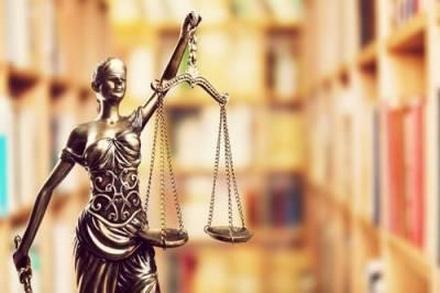 There are various rights that all American citizens have been given by the U.S. Constitution. For example, we all have the right to freedom of speech, freedom of the press, and the freedom to peacefully assemble. One of the constitutional rights that comes into question in many criminal cases is your Fifth Amendment right against “double jeopardy,” or being tried for the same crime more than once. When you commit certain crimes, you may find that you face both state and federal charges for the same event. Many times, this is a result of committing a crime that takes place across state lines, but it can also be a result of various crimes that violate both state and federal laws. Though it may seem unfair, you can indeed face both state and federal charges for the same crime.
There are various rights that all American citizens have been given by the U.S. Constitution. For example, we all have the right to freedom of speech, freedom of the press, and the freedom to peacefully assemble. One of the constitutional rights that comes into question in many criminal cases is your Fifth Amendment right against “double jeopardy,” or being tried for the same crime more than once. When you commit certain crimes, you may find that you face both state and federal charges for the same event. Many times, this is a result of committing a crime that takes place across state lines, but it can also be a result of various crimes that violate both state and federal laws. Though it may seem unfair, you can indeed face both state and federal charges for the same crime.
Understanding “Double Jeopardy”
To explain the legality of charging a crime on both the state and federal levels, you must first understand the two most important concepts that are involved: double jeopardy and dual sovereignty. Many people believe that being charged both by the state and the federal government is a violation of their Fifth Amendment rights. The Fifth Amendment states that, “No person shall...be subject for the same offense to be twice put in jeopardy of life or limb…” This means that once a person is subject to certain charges, they cannot be subject to charges arising from the same incident again.




